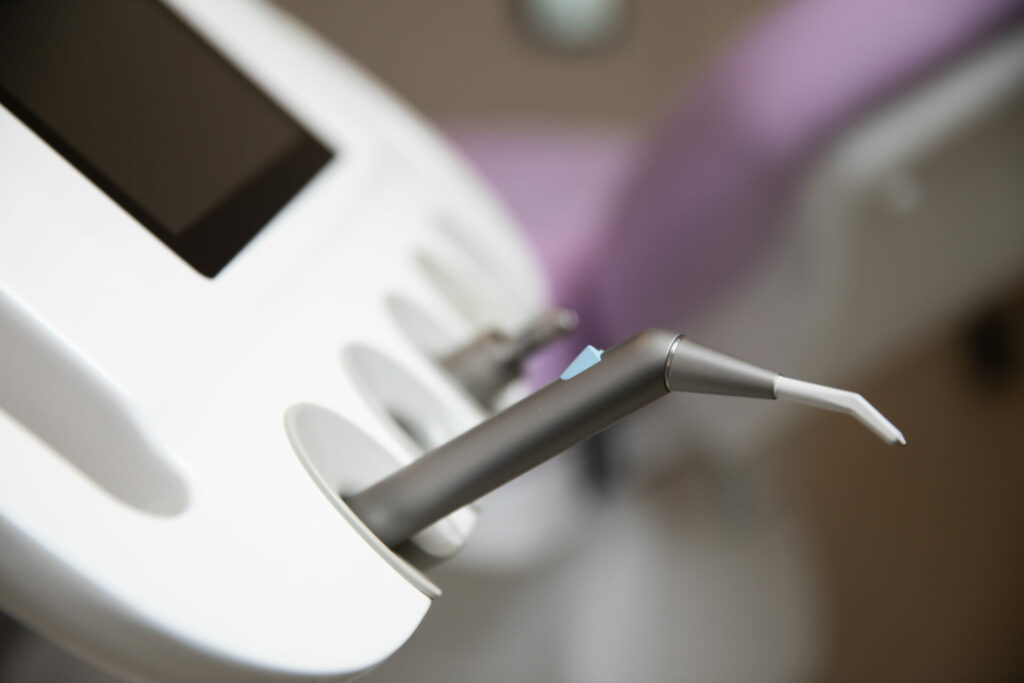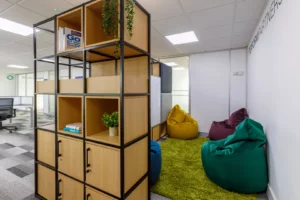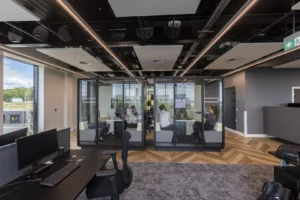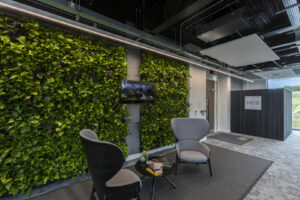With the North West fast becoming a hotspot for the life science sector, we look at how the nature of these businesses drives imagination and innovation in workspace design.
The life science sector is rapidly growing. In the past few years, it has represented one of the UK’s most successful sectors, expanding as much as 9% year-on-year. It is now worth over £94bn to the UK economy. Recognising its importance in driving UK growth, it is set to receive £650m of government funding to aid further expansion.
As these businesses grow, the need for tailor-made workspaces to facilitate their work and drive scientific innovation has intensified. Defined by ever-evolving research, life science businesses are demanding workspaces that break the mould. They want headquarters that can evolve in harmony with their discoveries. So, what does that mean for the future of workspace design?
What are life sciences?
Life sciences are made up of the sciences that study living things. It’s a broad field including biotechnology, which encompasses matters like medicinal, agricultural, and alternative fuel research. It also extends out to fields such as biology, ranging from dentistry to plant-based studies. Life sciences pertain to a rich array of businesses all seeking very different results. Their workspaces, then, must be designed with such diversity in mind.
Outside of the box
Many workspaces come coupled with a predisposition of how they should look and feel. As the life science sector is so wildly varied, such preset ideas tend not to blend with what these businesses need from their workspaces.
As such, life science workplace design is leading the way with workspace innovation, delivering new ideas and approaches at a rate of knots. These spaces must be tailor-made, forward-thinking, cohesive, and flexible; they must be designed for their individual purpose. It’s a sector spurred on by questions and discovery, so it’s no surprise that life science businesses aren’t drawn to pre-written solutions. Due to this very nature, laboratory workspaces are standing out from the crowd.

Evolving lab spaces
For life science businesses, the makeup of their research can look different year-on-year. Each discovery could lead a business on a new path, and so the space requirements of labs can be ever-changing.
Designing with flexibility allows spaces to be continually reconfigured to accommodate evolving methodologies and equipment. When drawing designs, a holistic, future-focused approach helps establish designs which are intended to evolve in harmony with a business and its research. They must be made to facilitate, rather than stunt growth and adaptations.
Innovative environments
Life science often requires critical and creative thinking. That means that, away from laboratories and admin spaces, the workplace needs environments for collaboration. These spaces differ from the needs of a traditional meeting room and often replace a boardroom table with comfy, open-plan spaces where teams can gather to brainstorm and problem-solve.
We’ve found that quirky furniture can help inspire bright ideas. This is a space where designers can go wild. It’s a trend plucked from modern office design, with tech-free spaces helping clear our minds and breed creative ideation.
Ahead of the eco curve
Life science businesses strive to be industry leaders when it comes to research and innovation. Working from a headquarters that is forward-thinking in terms of sustainability is important here. Sustainability will likely dominate decision-making for the next decade, so life science businesses are eager to showcase their own forward planning through the sustainability of their premises.
It’s a movement that is driving innovation as businesses seek out sustainable alternatives wherever they can. From carbon-neutral flooring to living walls and recyclable furniture, these businesses are helping drive the demand for greater sustainable workplace revelations.
Leading the way
By their very definition, life science businesses are never stationary. They want to be seen as industry leaders capable of thinking outside of the box. It’s making the workplaces they desire definitively unique as they seek for their headquarters to use them as the embodiment of what makes them stand out.
By working closely with workplace designers, these businesses are not just looking for a quick fix or an easy compromise, they want fit-for-purpose spaces that do away with template designs. They are becoming torchbearers for innovative workplace design, where every aspect of space is tailored and tweaked to perfection. These are the workspaces of the future, and many other sectors can draw from their approach to bring their workplace to vibrant, future-focused life.





